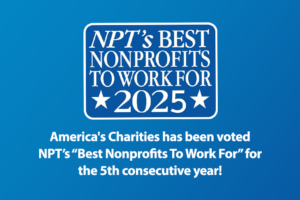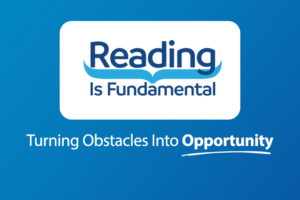Sarah Ford | April 2, 2015
Junior Achievement / Allstate Survey Reveals Disconnect Between Teens’ and Parents’ Views on Paying for College and Other Personal Finance Topics
NEW YORK, NY— Junior Achievement USA® (JA) and The Allstate Foundation released startling findings from the 2015 Teens & Personal Finance Survey, which expanded to include parents in the personal finance discussion for the first time in its 16-year history.
The 2015 survey reveals that nearly half of teens (48 percent) think their parents will help pay for college but only 16 percent of parents (of teens) report planning to pay for post-secondary education. Junior Achievement USA has commissioned the Teens & Personal Finance Survey for the last 16 years, partnering with The Allstate Foundation since 2005. The 2015 study was conducted online on Junior Achievement’s behalf by Harris Poll in January 2015 among 801 parents of teens ages 13-18 years old and 800 teens ages 13-18 years old.
“Based on this year’s findings, it is obvious that parents and teens need to have honest conversations about money management, including paying for college,” said Joseph Peri, president of JA New York. “Together as a family, it is important to develop a plan for life after high school – whatever that looks like for your family. As an organization that strives to empower all young people to own their economic success, JA will continue to help open these channels.”
The survey also reinforces that parents serve as teens’ biggest teachers when it comes to money management skills. Eighty-four percent of teens report looking to their parents for information on how to manage money, but more than a third (34 percent) of parents says their family’s approach to financial matters is not discuss money with their children and “let kids be kids.” Millennial parents, ages 18-34, are the least likely to be confident about explaining money management to their kids: 60 percent report feeling confident, while 76 percent of parents ages 35-44 and 79 percent of parents ages 45-54 report feeling the same.
When parents are talking to their kids about money, they are leaving girls out of the conversation more frequently. Teen girls are more likely than boys to say their parents don’t talk to them enough about money management (40 percent to 24 percent) and paying for college (34 percent to 23 percent). When asked about their future earning power at their first “real” job, 24 percent of teen girls think they will make $15,000 or less, while only 16 percent of boys feel the same. Moms also are significantly more likely than dads to say their child will earn $15,000 or less (26 percent to 17 percent).
Since 2005, Junior Achievement and The Allstate Foundation have partnered to provide students with valuable information about personal finance in the classroom and help them apply it in their lives. The JA Economics for Success® program, created in partnership with The Allstate Foundation, has helped more than 1.2 million students set personal goals about money and make wise financial choices. The program also helps empower students to develop, plan and set goals to help protect them from unexpected financial pitfalls.
Other key findings from the survey include:
- Interest in community college is on the rise. When asked to consider the rising cost of college, a larger number of teens in 2015 are considering attending a local community college instead of another college or university: 22 percent in 2014 rose to 29 percent in 2015.
- The gender gap continues in personal finance lessons from parents. Teen boys are more likely than teen girls to report that their parents help them keep track of money (31 percent to 20 percent). Teen boys also are more likely than teen girls to report they learned to take care of money from parents (88 percent to 80 percent).
- The number of teens who think their parents don’t spend enough time talking to them about managing money significantly rose (21 percent in 2014 to 32 percent in 2015).
Methodology
This survey was conducted online within the United States by Harris Poll on behalf of Junior Achievement between January 12-30, 2015, among 801 U.S. adults aged 18 or older, who are the parents of teens aged 13-18 and 800 teens aged 13-18. Each group had an oversample of 200 Hispanics. The 2014 study was conducted online within the United States by Harris Poll and included 712 teens aged 13-18. Figures for age, race/ethnicity, education, region, and household income were weighted for parents where necessary to bring them into line with their actual proportions in the population. For teens, figures for age, gender, race, parent’s education, region, and school location were weighted. Propensity score weighting was also used to adjust for respondents’ propensity to be online.
For More Information, Contact:
Jacqueline Dolly
Junior Achievement of New York
(212) 907-0046
Kyle Donash
The Allstate Foundation
(847) 402-5600
Support Junior Achievement’s Work:
Get Resources and Insights Straight To Your Inbox
Explore More Articles
For Fifth Consecutive Year America’s Charities Named ‘Best Nonprofit To Work For’
Washington, D.C. – April 1, 2025 – America’s Charities, the nonprofit that mobilizes the power of giving as a leading provider of volunteering, workplace giving,…
Read ArticleWorkplace Fundraising + Volunteering Summit (April 2nd and 3rd, 2025)
Join us in attending this virtual summit! The America’s Charities team is joining up with other leading voices in the workplace giving space for a…
Read ArticleThe Time to Act is Now
The results of the 2024 National Assessment of Educational Progress (NAEP) are in, and the findings are, in a word, heartbreaking. This assessment serves as…
Read ArticleGet Resources and Insights Straight To Your Inbox
Receive our monthly/bi-monthly newsletter filled with information about causes, nonprofit impact, and topics important for corporate social responsibility and employee engagement professionals, including disaster response, workplace giving, matching gifts, employee assistance funds, volunteering, scholarship award program management, grantmaking, and other philanthropic initiatives.




